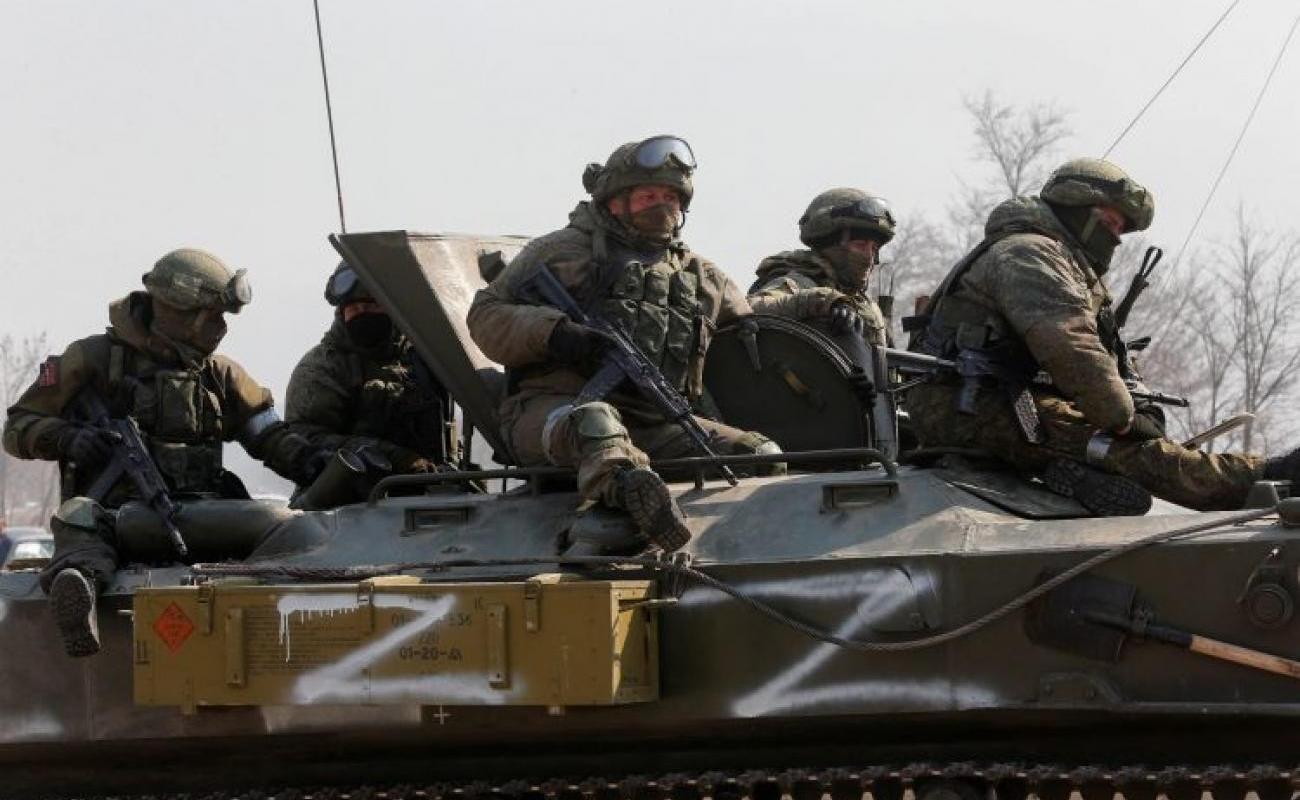Russia's 'Shadow Mobilization' Accelerates With New Ethnic Units From The North Caucasus

Faced with a deepening personnel crisis within its military, Russia is scrambling to find fighters for its war in Ukraine and recruiting heavily from its North Caucasus region to form new units along ethnic lines who are then deployed with minimal training.
Regional officials from Daghestan, Ingushetia, and Kalmykia have announced plans to form rifle companies that are each made up of soldiers from a particular Russian republic. According to reporting by Caucasus.Realities, a regional news outlet of RFE/RL’s North Caucasus Service, these national units are formed primarily of contract soldiers who have previous military training and have been targeted by local recruitment drives aimed at pressuring and enticing men of military age to join the war in Ukraine.
“It seems that the governors [of these North Caucasus republics] were instructed to form extra forces in addition to official recruitment through the military registration and enlistment offices,” Sergei Krivenko, director of the Citizen. Army. Law human rights group, told RFE/RL.
Krivenko says that Citizen. Army. Law is monitoring the formation of these units closely but says that much is still not clear about the conditions and circumstances they will all face, including pay and whether they will be officially classified as military personnel within the Defense Ministry or be designated as paramilitary or mercenary units, which could leave them in a legal gray area.
He adds that while the formation of such units is happening across all of Russia at the moment, the North Caucasus is a particular target, with the region home to some of the lowest living standards and salaries in the entire country.
“Conscripts and those who have signed a contract have the status of servicemen within the Russian armed forces,” Krivenko said. “But there is also a second category -- so-called 'volunteers' -- and it is still unclear who guarantees the contract and what legal obligations exist under it.”
Russian human rights groups and lawyers working on military issues have reported that enlistment offices have been calling in reservists for “checks” and “updates of personal information,” and then offering them contracts to go to war in Ukraine.
But such matters are not always so clear-cut, with Citizen. Army. Law saying that some reservists, especially those in the newly formed national units, believed they were signing a contract to serve in the armed forces but were actually classified differently and did not receive the same social benefits and guarantees of pay that are spelled out by law for military personnel.
“The creation of these national units is legal. There are no acts that prohibit their formation if it’s under the purview of the Ministry of Defense,” Krivenko said. “But if these units are being assembled by the authorities ‘to assist’ the Ministry of Defense, then this is illegal, although it appears everyone is turning a blind eye to [the law] now.”
'Shadow Mobilization'
After four months of war, the Kremlin has suffered heavy losses in its invasion of Ukraine but has so far declined to order a general mobilization of draft-age soldiers. Instead, recruiters across Russia have been calling eligible men to promote contract military service and reactivate reservists.
“These efforts represent a form of shadow mobilization. These are piecemeal efforts that allow the Russian military to sustain itself in the war but do not address the fundamental deficit in manpower,” Michael Kofman, director of Russia studies at CNA, a think tank in Virginia, wrote in an analysis at the beginning of June.
Russia is also conducting its spring draft, which seeks to conscript about 130,000 men between the ages of 18-27 by the middle of July.
Legally, conscripts can’t be sent to battle unless they have at least four months of training, and Moscow has said repeatedly it won’t deploy conscripts to Ukraine, but there have been several confirmed cases of inexperienced soldiers being sent into combat since the Kremlin’s February 24 invasion.
Mikhail Savva, a Russian human rights activist who is part of the official group documenting war crimes in Ukraine, told RFE/RL that the creation of units along ethnic lines is a symptom of the broader personnel crisis facing Russia’s military and that their use could lead to poorly disciplined units in Ukraine, which could cause greater civilian casualties in the war.
“Such formations are poorly controlled and poorly disciplined,” Savva said. “They pose a threat not only to the civilian population of Ukraine but also to other units of the Russian Army.”
Russia has already used military units formed along ethnic lines in the war in Ukraine, with Chechen brigades under the authority of Ramzan Kadyrov, the strongman leader of Chechnya, being part of the Russian invasion.
The units have been dogged by mounting evidence of war crimes against Ukrainians, and some analysts have noted incidents of infighting between Chechen paramilitaries and standard Russian personnel.
But the units have also played significant roles in some of the fighting, with Chechen fighters taking up a prominent position within the brutal and costly Russian effort to take the Ukrainian port city of Mariupol.
Denis Sokolov, an expert on the North Caucasus at the Free Russia Foundation, told RFE/RL that the move to create more units along ethnic lines is, in part, an effort to motivate soldiers.
“This is an attempt to tie reputation to the effectiveness of military operations because [many within the Russian forces] do not have the motivation to fight right now,” Sokolov said.


